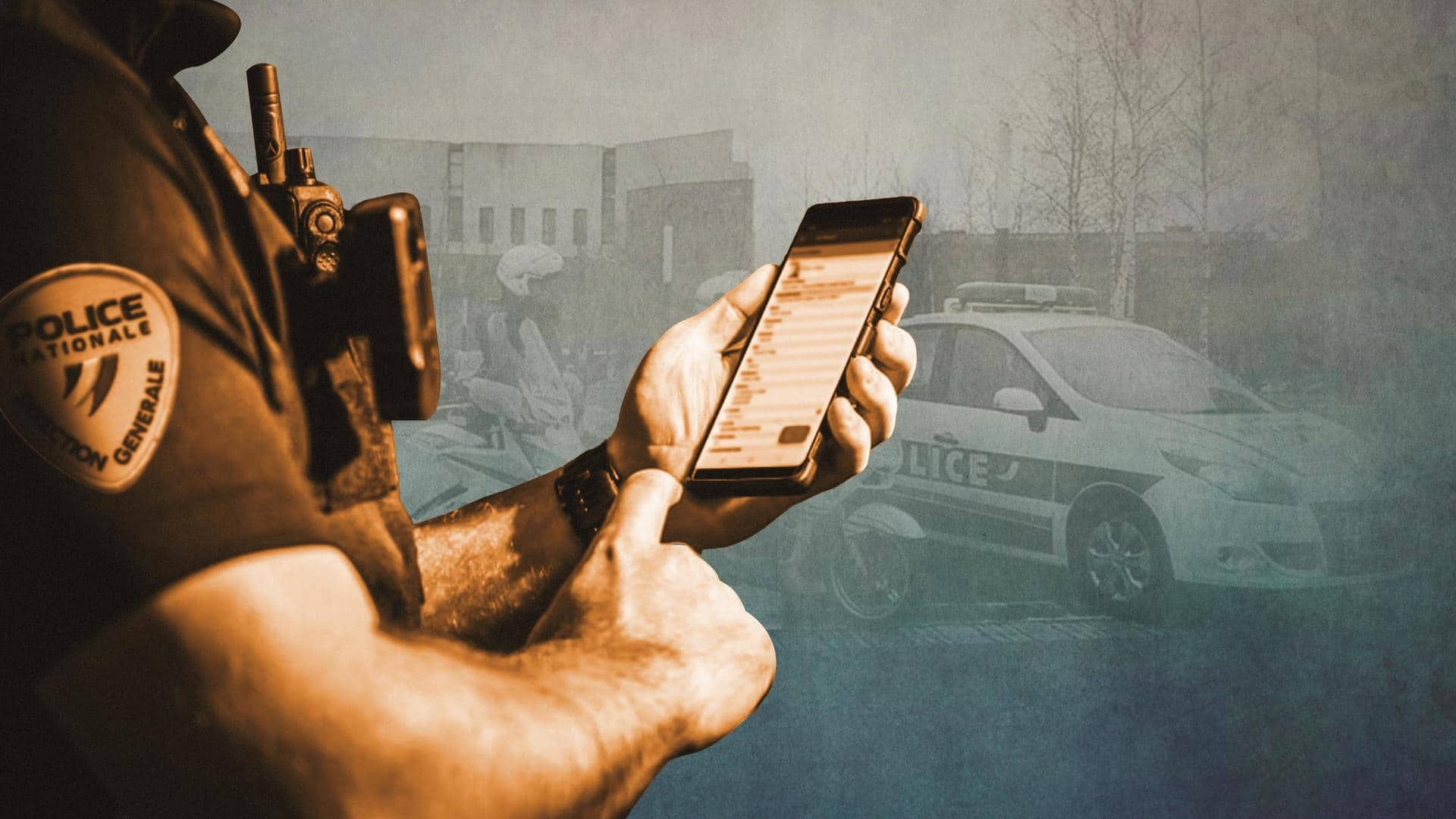France to let police spy on suspects through phones: Report
What's the story
The police in France will be able to spy on suspects by remotely activating the microphone, camera, and GPS of their mobiles and other devices as part of a wider justice reform bill, AFP reported.
While left and rights defenders have targeted the spying provision as an authoritarian snoopers' charter, Justice Minister Eric Dupond-Moretti insisted it would only affect "dozens of cases a year."
Context
Why does this story matter?
This new bill comes at a time when France is experiencing widespread violence stemming from the fatal shooting of a 17-year-old boy named Nahel M by a police officer last week during a routine traffic check in Nanterre, Paris.
The shocking development was captured on video and triggered calls for a comprehensive review of law enforcement regulations regarding the use of firearms.
Details
Here's how French police will benefit from it
According to the news agency AFP, the measure, which covers cars, laptops, and other connected objects as well as mobiles, would allow the geolocation of suspects in crimes punishable by at least five years in prison.
Furthermore, devices can be activated remotely to record sound and take photos of individuals suspected of terror offenses, delinquency, and organized crime.
More details
Remote surveillance can't exceed six months: Report
During a debate on Wednesday, MPs from President Emmanuel Macron's camp proposed limiting the usage of remote espionage to "when justified by the nature and seriousness of the crime" and "for a strictly proportional duration."
A judge must approve any use of the provision, while the total duration of the surveillance can not exceed over six months.
Know more
Details on individuals who won't be legitimate targets
However, "We're far away from the totalitarianism of 1984," Dupond-Moretti stated while referring to George Orwell's novel regarding a society under total surveillance.
The justice minister also added that "people's lives will be saved" by this new law.
Furthermore, it was learned that sensitive professions like journalists, doctors, lawyers, MPs, and judges would not be legitimate targets.
Further information
French police, protest violence 'a problem': EU commissioner
Meanwhile, the ongoing violence in France prompted remarks from European Union (EU) Justice Commissioner Didier Reynders on Wednesday.
It's "striking" that a "very high level of violence" was reported in protests in France in the past years over the cost of living, pension reform, and the police killing of the teenager last week, AFP quoted Reynders as telling Belgian radio RTBF.
